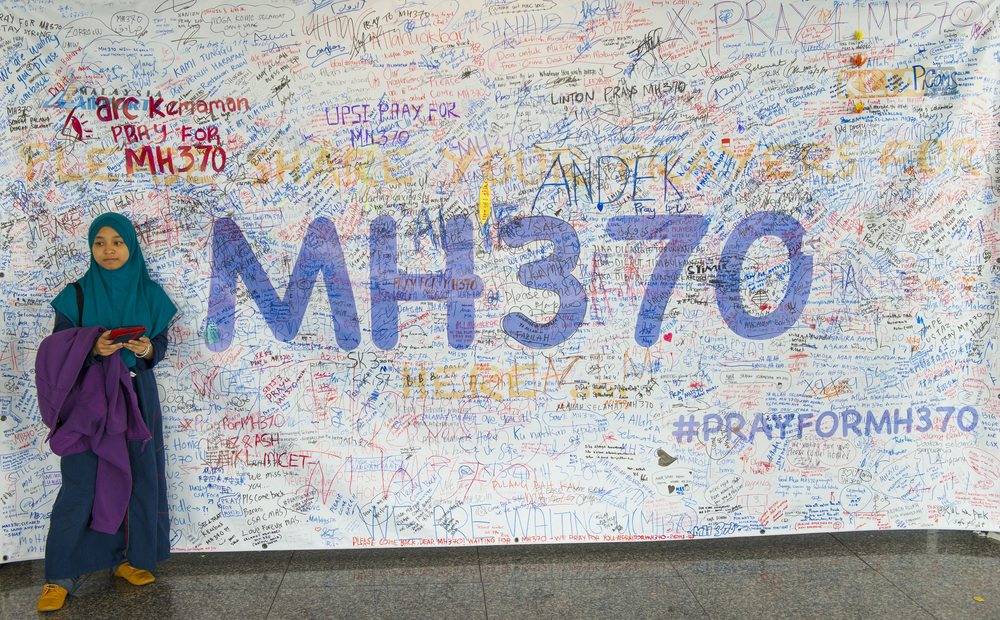
BEIJING — In the more than 100 days since her husband disappeared along with Malaysia Airlines Flight 370, Zhang Qian’s world has collapsed. She quit her job, sleeps rarely and prefers not to go out, except to the Buddhist temples where she has found some solace.
“At the temple, I can speak from my heart to my husband,” Zhang, 28, said on a recent visit to the Temple of Spiritual Light in the western hills of Beijing. She broke down in sobs before continuing.
“I think he can hear me … I have so much to tell him, there is so much I have not said. I hope the Buddha will carry those words to him and bring him back.”
Much of the world has moved on from the frenzied interest in the mysterious March 8 disappearance of the plane, but relatives of the 239 people missing cannot. Satellite data shows that the plane went down in a remote area of the southern Indian Ocean far from any land, but with no trace of the aircraft recovered, many cling to a flicker of hope – however faint – that their loved ones might still be alive.
“It may be my fantasy, but what if one day he sends some distress signals and he gets saved, and that will be the end of this?” Zhang said.
Her husband was among 153 Chinese on the plane. Chinese culture places an especially heavy emphasis on finding and seeing the remains of people believed dead before true grieving and the process of moving on can begin.
The absence of proof of death has made closure elusive for all relatives, said Lawrence Palinkas, professor of social work at the University of Southern California.
“When there is no physical proof of death, it is easier to remain in (denial) for a much longer period of time,” he said. “At this point, those who have not accepted the possibility that the plane crashed and all aboard were lost are relying on extended family and friends to maintain the belief that family members are still alive, or that hope is still viable until the remains are found.”
Liu Weijie held onto his wife’s plane ticket for a U.S. trip in late May for more than two months, even though she was among the Flight 370 passengers. They were supposed to go to their son’s graduation ceremony. He returned the ticket three days before the flight, and canceled his own trip as well.
In messages posted to a mobile phone blog, Liu apologized to his wife for not allowing her to visit their son earlier. “I truly regret that I did not let you visit your son during the Chinese New Year. Now it’s been nine months since you last saw your son,” he wrote.
“The sense of helplessness, the feeling of powerlessness, and the pain have not eased but only worsened as times goes by,” Liu said in an interview. “Any holiday or days of significance have become unbearable. I don’t want to hear any mention of them.”
Many of the Chinese relatives have been reluctant to talk about their missing kin to avoid any suggestion that they are gone for good and to keep the focus on finding the missing plane, though they have become somewhat more likely to speak about them now. They say their belief that their loved ones are still alive helps them get up in the morning and care for their families.
“With his photos on the walls, I don’t feel that he is absent, and seeing him in the photos has given me strength to do my best to take care of our small child before he returns,” said Zhang Ying, whose husband also was aboard Flight 370.
At the same time, it is heart-wrenching for her to be without the man who hoisted their baby above his head on weekend outings, and who fell asleep while holding her tiny hand. Zhang said she can no longer produce milk for her daughter, and that her mother-in-law has lost hearing from crying so much.
Cheng Liping, whose husband was on the plane, called the missing flight “a fatal blow that has spun my entire world.” Her heart ached when her 6-year-old son called “daddy” to a stranger who walked out of a car in their Beijing neighborhood.
As for Zhang Qian, she is rarely outside at all. She quit her work as an office clerk and shuts herself at home.
“I don’t go out anymore because outside I see the shadow of my husband and me together,” Zhang said.
Zhang met Wang Houbin nearly nine years ago in Beijing in their college freshman year. Wang was on Flight 370 returning home after working on an art exhibit in Kuala Lumpur.
“I am afraid to go out. I don’t speak any more,” said Zhang, who only ventures out to meet other relatives of Flight 370 passengers and to visit temples. “I used to sleep a lot but I have spent many nights without closing my eyes, not even with the help of sleeping pills.”
Her parents have moved in with her, but sometimes they become outlets for her grief and frustration. “I throw tempers at my dad and mom because I cannot help myself,” she said, bead-like tears rolling down her thin cheeks at the mention of Wang.
She finds comfort in Buddhist temples, though she was not religious before the plane vanished. “I didn’t believe in this in the past, but now I pray wholeheartedly for the return of my husband,” she said.
Zhang also recently returned to the hotel banquet hall where relatives and journalists were informed about developments earlier in the search. Those briefings were often packed, but they stopped weeks ago.
“It’s so empty, not even a chair,” she said, standing in the middle of the room. “Just like the hearts of us relatives. There is nothing, and we have nothing.”
—-
Videographer Helene Franchineau in Beijing contributed.